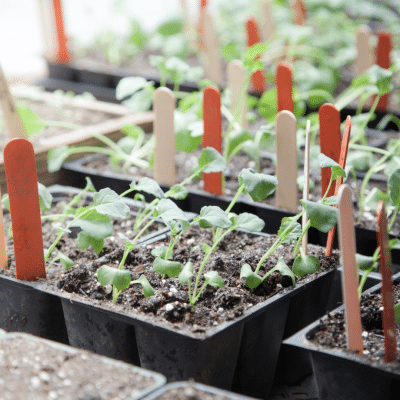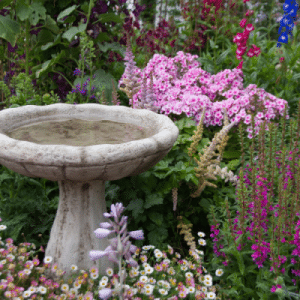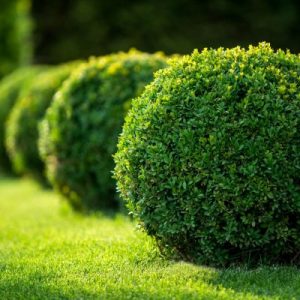Winter is here, but that doesn’t mean you need to give up on your garden. Give yourself the gift of edible landscaping this holiday season by planting fruits and veggies indoors this winter! It may be cold now, but there are many produce options that can be started inside and transplanted after the snow thaws and the sun shines again!
A Starter's Guide
Planting indoors from seeds lets you grow many plants cheaply depending on the seed price. Starting seeds indoors allows for some weeks of growing time during cold months with the benefit of enjoying fresh produce, with some species growing well indoors in a potted environment. Consider that not all plants grow the same or like to be transplanted – some are very picky about when they’re planted and need to be moved into the ground after a period of time.
To begin, make a list of what you’d like to grow and label potted plants appropriately to stay organized. Follow directions on the seed packets for planting depth, lightning and draining needs, and special instructions as some seeds may need to be soaked, scratched, or chilled before planing. Refer to the planting calendar to stay ahead of planting and transplanting dates specific to your location and be prepared to make structural and growing adjustments for plants that may need extra time or support.
Start Inside
Below are some species of plants we recommend as good starters. Having a hard time deciding? If produce proves too challenging, practice indoor growing with herbs and spices instead to learn and prepare!
- Broccoli & Cauliflower – Easy to transplant, these veggies are hardy and no-hassle growers. Plant as far out as 10 weeks from last frost – which will vary depending on region – for a well-timed transfer
- Brussels sprouts – With an average sowing time of 4 months, sprouts are great to plant soon.
- Cabbage – Potentially challenging for beginners, plant cabbage about 6 – 8 weeks before the last frost. Note that cabbage quickly depletes the soil of nutrients and needs good drainage to avoid rot.
- Tomatoes – With 60 to 100 ‘days to harvest’, tomatoes are faster-growing plants that need long hours of sunlight – 8 to 10 to be exact – and do well as more-or-less permanently indoor plants so long as their needs are met.
- Peppers (All Varieties) – Tasty and great for repelling bugs, start pepper seeds about 2 1/2 months before the last spring frost for best growth, introducing fertilizer or compost a week before transplant to acclimate.
- Eggplant – Hardy enough to be started two months in advance, Eggplants require warmer soil to stay healthy. Choose a constantly sunny spot for a happy eggplant with good structural support to avoid damage.
Worried about springtime transplanting? Call Mountain Road Landscaping for help. We’ll handle the transplanting and design to make your garden and yard look great! Trust the experts when it comes to your spring grow to ensure great tasting, healthy produce all summer.





